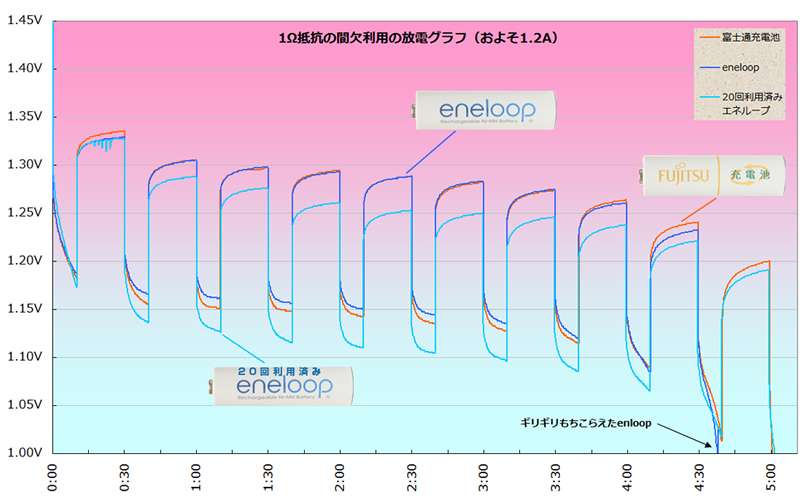Well, I looked into this matter a little bit, and here is what I have found. These are the batteries in question, as they are currently being packaged and sold in Japan (left is the standard Eneloop "equivalent" and the Eneloop Pro "equivalent" is on the right):

Until 2009, a Sanyo subsidiary called "Sanyo Energy Twicell Co, Ltd." manufactured Eneloops in Japan. But, as the FTC order posted by
BillSWPA above details, when Sanyo sold its "battery business" to Panasonic, they decided to sell their actual battery manufacturing subsidiary to Fujitsu, to avoid problems with US and European anti-trust laws. So, this manufacturing company is now called "FDK Twicell Co., Ltd." and this is still the exact same physical production facility where Sanyo Eneloops used to be manufactured. (Presumably, Panasonic now manufacturers their Eneloops at their own production facility somewhere? Or, perhaps they actually purchase all their Eneloops from FDK?)
According to an August 21, 2012 review of these Fujitsu batteries, they are physically identical to the old Eneloops. The reviewer provides a number of physical features as "proof" of this fact, including the following photos. He says that the small imperfection in the positive terminals of both batteries demonstrates that they must have come off the same production line.

This reviewer did, however, find some differences in electrical performance...



He writes that the Eneloops have, in general, better performance (but, the Fujitsu batteries perform better in "burst" applications, such as a camera flash). My impression is that he did not seem to think that the differences in performance are all that significant, but that overall the Eneloops were a bit better. (By the way, the light blue line in the graphs is said to be an Eneloop that has been cycled 20 times. I am not sure that I understand what he means by this... Are only 20 recharge cycles enough to make any difference in performance?)
Anyway, his conclusion was that the Fujitsu batteries are manufactured on the exact same production line, to the exact same physical specifications as Eneloops, but they have slightly different chemistry due to the use of slightly different "ingredients." His primary complaint about the Fujitsu batteries seems to be that they cost more than Eneloops. (Judging by the prices I found on the Japanese internet today, they now appear to be priced about the same, or even slightly less than Panasonic Eneloops.)
Well, that's all I could figure out, so far. Perhaps those on the forum with a better understanding of battery performance graphs can help us out a bit more here? Are these Fujitsu batteries
really "Eneloops"?






